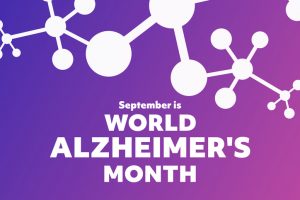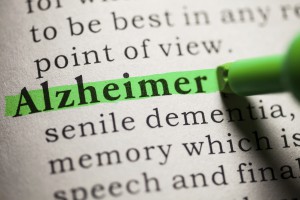 This September, Flushing Hospital Medical Center is raising awareness about the signs, symptoms, and causes of Alzheimer’s disease and other forms of dementia as part of the World Alzheimer’s Month campaign. Alzheimer’s is the seventh leading cause of death in the United States and the most common cause of dementia among older adults.
This September, Flushing Hospital Medical Center is raising awareness about the signs, symptoms, and causes of Alzheimer’s disease and other forms of dementia as part of the World Alzheimer’s Month campaign. Alzheimer’s is the seventh leading cause of death in the United States and the most common cause of dementia among older adults.
A person with Alzheimer’s gradually loses their cognitive abilities, including memory recollection and behavioral regulation. In the later stages of the disease, a person can even lose their motor functions, leaving them unable to perform basic daily tasks such as bathing independently.
People can also suffer from multiple forms of dementia at once. This is referred to as “mixed” dementia and often occurs as a combination of Alzheimer’s and vascular dementia.
Memory problems are one of the main early signs of Alzheimer’s, though they may be difficult to distinguish from similar symptoms of mild cognitive impairment. People in the early stages of Alzheimer’s may also have problems with word-finding, vision, reasoning, and finding their way around familiar places. These problems may appear or worsen as the disease progresses.
A mix of genetic, environmental, and lifestyle factors are believed to influence the development of Alzheimer’s; however, specific causes of the disease are unknown. As Alzheimer’s progresses, abnormal amyloid and tau proteins spread throughout the brain as changes in its structure and functions occur. There’s no clear way to prevent this spread, though early research indicates that regular activity and good heart health may help.
If you or a loved one are displaying potential signs of Alzheimer’s disease, you can schedule an appointment with a doctor at Flushing Hospital’s Ambulatory Care Center to receive a diagnosis or treatment by calling (718) 670-5486.
All content of this newsletter is intended for general information purposes only and is not intended or implied to be a substitute for professional medical advice, diagnosis or treatment. Please consult a medical professional before adopting any of the suggestions on this page. You must never disregard professional medical advice or delay seeking medical treatment based upon any content of this newsletter. PROMPTLY CONSULT YOUR PHYSICIAN OR CALL 911 IF YOU BELIEVE YOU HAVE A MEDICAL EMERGENCY.

